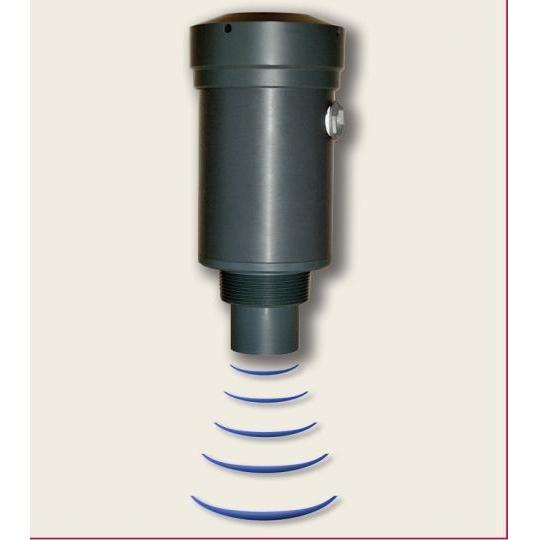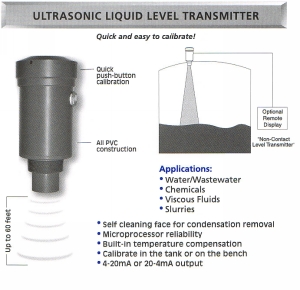List Artikel
Level detection or continuous monitoring
Senin, 11 Januari 2016

Sensors for both point level detection or continuous monitoring
Ultrasonic

Ultrasonic level sensors are used for non-contact level sensing of highly viscous liquids, as well as bulk solids. They are also widely used in water treatment applications for pump control and open channel flow measurement. The sensors emit high frequency (20 kHz to 200 kHz) acoustic waves that are reflected back to and detected by the emitting transducer.
Ultrasonic level sensors are also affected by the changing speed of sound due to moisture, temperature, and pressures. Correction factors can be applied to the level measurement to improve the accuracy of measurement.
Turbulence, foam, steam, chemical mists (vapors), and changes in the concentration of the process material also affect the ultrasonic sensor’s response. Turbulence and foam prevent the sound wave from being properly reflected to the sensor; steam and chemical mists and vapors distort or absorb the sound wave; and variations in concentration cause changes in the amount of energy in the sound wave that is reflected back to the sensor. Stilling wells and wave guides are used to prevent errors caused by these factors.
Proper mounting of the transducer is required to ensure best response to reflected sound. In addition, the hopper, bin, or tank should be relatively free of obstacles such as weldments, brackets, or ladders to minimise false returns and the resulting erroneous response, although most modern systems have sufficiently "intelligent" echo processing to make engineering changes largely unnecessary except where an intrusion blocks the "line of sight" of the transducer to the target. Since the ultrasonic transducer is used both for transmitting and receiving the acoustic energy, it is subject to a period of mechanical vibration known as “ringing”. This vibration must attenuate (stop) before the echoed signal can be processed. The net result is a distance from the face of the transducer that is blind and cannot detect an object. It is known as the “blanking zone”, typically 150mm – 1m, depending on the range of the transducer.
The requirement for electronic signal processing circuitry can be used to make the ultrasonic sensor an intelligent device. Ultrasonic sensors can be designed to provide point level control, continuous monitoring or both. Due to the presence of a microprocessor and relatively low power consumption, there is also capability for serial communication from to other computing devices making this a good technique for adjusting calibration and filtering of the sensor signal, remote wireless monitoring or plant network communications. The ultrasonic sensor enjoys wide popularity due to the powerful mix of low price and high functionality.


Belum Ada Komentar